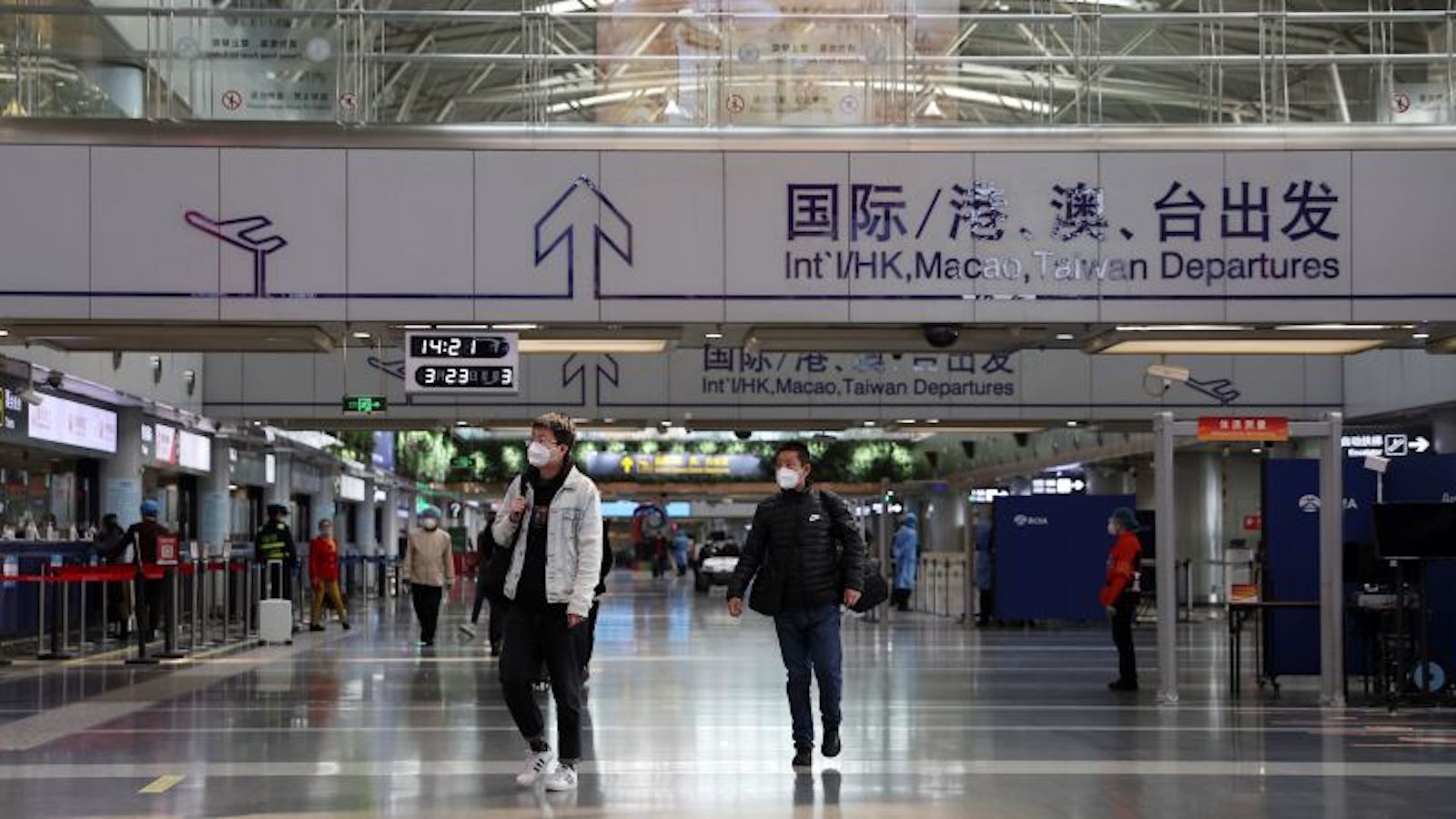Overflowing crematoriums in Chinese cities due to numerous deaths 3:18
(CNN) --
China will remove quarantine requirements for international arrivals starting January 8, 2023, in a major step toward reopening its borders that have closed the country from the rest of the world for nearly three years at the expense of the covid-19.
Incoming travelers will only need to show a negative covid test result obtained within 48 hours before their flight departure, China's National Health Commission (NHC) said in an announcement late Monday.
Currently, they are subject to five days of hotel quarantine and three days of self-isolation at home.
Restrictions on airlines on the number of international flights and passenger capacity will also be removed, according to the announcement.
The border easing is part of a broader move by China to dismantle what was left of its longstanding zero-Covid policy, which was abruptly abandoned earlier this month following nationwide protests over its high social cost. and economic.
The sudden U-turn in the policy caught the public and the country's fragile health system off guard, causing widespread shortages of cold and fever medicines and leaving hospitals struggling to cope with an unprecedented surge in infections.
advertising
After reversing lockdowns, mass testing and allowing patients who test positive for covid-19 to quarantine at home, the government is now removing other remaining preventative measures, including contact tracing.
China's top health body stops publishing daily covid case figures as infections soar
China seeks another strategy to combat covid-19 0:52
China reopens borders
China had sealed its borders since March 2020 to prevent the spread of the virus, staying in global lockdown even as the rest of the world reopened and weathered the pandemic.
Foreigners have been largely barred from entering China, apart from a limited number of family or business visits.
The NHC said it will further "optimize" arrangements for foreigners to visit China for work, business, study or family purposes and "provide convenience" for their visa applications.
The lifting of travel restrictions is also a great relief for Chinese citizens studying or working abroad.
Those who could not afford high airline ticket prices, lengthy hotel quarantines or onerous testing requirements have not been able to return home for three years.
The authorities also pledged to resume outbound tourism for Chinese citizens in an orderly manner, depending on the international covid situation and the capacity of various domestic services, though they did not provide a timetable or details on implementation.
On Chinese social media, many celebrated the long-awaited relaxation in international travel.
Ctrip, a travel booking site in China, said searches for popular overseas tourist destinations on the platform increased 10-fold within an hour after the new policy was announced.
Others lamented the suffering, loss, and missed opportunities in recent years.
“How many people crossing borders, from students abroad to workers making a living in Africa, had to change their life plans?
How many families have been separated and prevented from seeing their loved ones for the last time?
How many three years do we have in our life?
These three years have changed us forever,” a Chinese journalist wrote on the Weibo microblogging site.
"Chaos" in China due to the covid: they send medicines for fever from abroad due to shortages
How will China save its economy?
1:00
Covid-19 in China, a Category B disease
China's top health authority made the blanket announcement on Monday as an action plan to downgrade its management of covid.
Since 2020, China has classified covid as a Category B infectious disease, but treated it as a Category A disease, putting it on a par with the bubonic plague or cholera and empowering local authorities to impose lockdowns and other restrictions.
Now, it will be treated as a Category B disease, in the same category as HIV and bird flu.
The commission also changed the official Chinese name for covid from "novel coronavirus pneumonia" to "novel coronavirus infection," an amendment it said is "more in line with the current characteristics and danger level of this disease." .
“The less lethal omicron variant has become the dominant strain of SARS-Cov-2, with only a very small number of cases developing into pneumonia,” the NHC said in the statement.
China's top leaders recently signaled they would refocus on growth next year and bet on easing pandemic restrictions to boost the economy.
China's current focus is preparing sufficient medical resources, according to the NHC statement.
Large and medium-sized cities must quickly transform their "Fangcang", makeshift centralized covid quarantine facilities, into designated hospitals with sufficient health staff, the NHC added.
The NHC also did not completely rule out the possibility of temporary and local restriction measures in the future.
“As we manage the outbreaks, we must pay special attention to the real-time global assessment of the intensity of the outbreak (pressure on the health system and the general situation of society) and take appropriate legal measures to limit group activities. and the movement of people in a flexible way to flatten the curve,” he said in the statement, adding that lockdowns could be re-imposed on nursing homes if the outbreak is severe.
Covid-19








